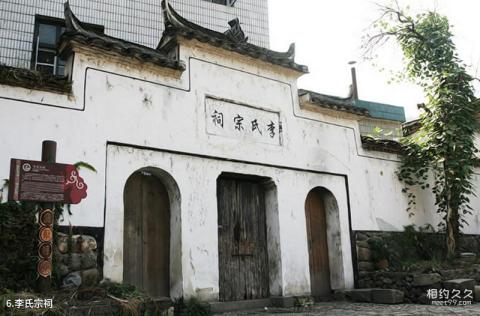
Introduction to the Li Clan Ancestral Hall: The main entrance of the Li Clan Ancestral Hall in Dajun. The three gates on the wall were opened together in the Ming Dynasty in order to praise three Jinshi in one sect. Since ancient times, the trend of farming and studying has been prevalent in Daquan, which has deep roots in family education. "The Genealogy of the Li Family - Fourteen Rules and Proverbs" contains clauses such as "correcting one's name, maintaining loyalty, serving one's own business, and promoting literature". The family motto of "reading to show off one's relatives and make one's name known" is clearly stated. As a result, in the Ming and Qing dynasties, Dajun's farming and studying culture reached a climax, and Dajun became a famous cultural village with a radius of hundreds of miles. According to genealogical records, there were 26 people who were awarded imperial examinations in the Ming and Qing dynasties, and from Tianshun to Jiajing in the Ming Dynasty. All three of them, father and son, were awarded Jinshi, which is a legend. His father, Li Cong, was a Jinshi in the sixth year of Ming Dynasty (1462 AD) and was promoted to Zuo Chief Secretary; his eldest son, Li Zhang, was a Jinshi in the 15th year of Hongzhi in the Ming Dynasty (1502 AD) and served as deputy imperial envoy of Shanxi; his second son, Li Chun, In the second year of Jiajing (1523 AD), he was promoted to Jinshi and appointed as Guanglu Shaoqing.
